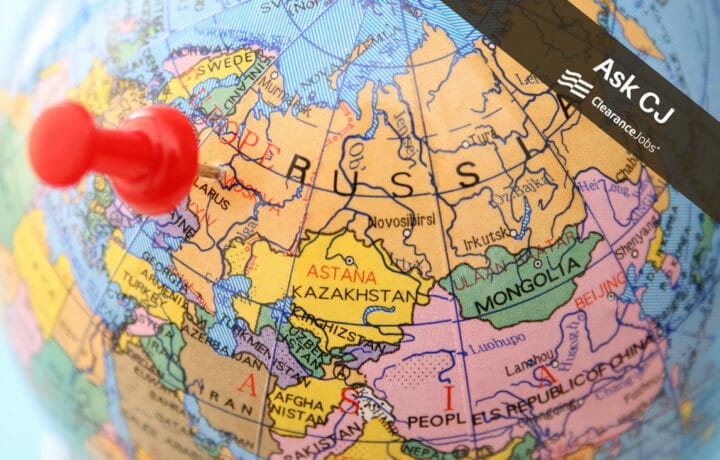If you plan to study abroad but are interested in getting into a national security career down the road, you may be wondering if your plans now will disqualify you from your plans later. A subscriber to ClearanceJobsBlog.com was questioning whether their academic scholarship to a Russian school would disqualify them from obtaining security clearance in the future:
I’ve accepted a scholarship to attend a joint public policy master’s program at Moscow State University (МГУ) and the Moscow State Institute of International Relations (МГИМО). The program involves prominent Western scholars, but it’s not officially connected to a Western institution. My motivations are to develop regional expertise and linguistic fluency.
Will my acceptance of this scholarship disqualify me—rather than simply delay me—from earning a Top-Secret clearance later in my career?
I ask because I’m currently participating in the master’s program virtually, in the USA, while my cohort experiences pandemic-related visa delays. The above concerns are making me anxious about this endeavor, even after serious initial deliberation and numerous encouraging conversations with officials in the USG. If my acceptance of the scholarship and involvement in the program present insurmountable security concerns, then I’d at least like to excuse myself from the program before I make plans to begin my studies in person—i.e., in Moscow. Context: U.S. citizen, former Senate staffer, aspiring analyst, clean personal record
FOREIGN CONTACTS AND FOREIGN PREFERENCE
Foreign contacts you may make in Russia and potentially foreign influence and preference adjudicative guidelines are considerations. Section 19 on the SF-86 (foreign contacts) will ask for any foreign nationals with whom you have a close and continuing relationship. It doesn’t necessarily apply to individuals you meet in an academic program unless you build a personal friendship. Section 20 (foreign activities) is pretty lengthy and you will be asked about stocks, property, investments, bank accounts, corporate ownership, or ETFs you may hold in specific geographical location. Considering employment while you are attending school? Tread lightly. Any conferences, trade shows, seminars, or meetings outside the U.S. you will also have to note on the SF-86.
Lindy Kyzer, Director of Content at ClearanceJobs says that if you plan to study abroad:
- Keep records of countries visited and dates of stays
- Keep track of any contacts who you develop a close relationship with. Carefully consider the implications before starting a romantic relationship.
- Don’t engage in illegal activities.
- Avoid creating financial obligations or creating business ties in a foreign country.
Will studying in Moscow disqualify you from obtaining security clearance? This alone is not enough to disqualify you, but acceptance of the scholarship and involvement in the program along with other preferential patterns or activities (whether illegal or questioning your allegiance to the U.S.) could raise security concerns.




